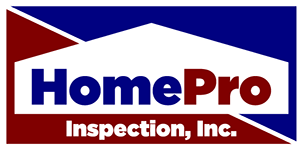MOISTURE CONTROL IS THE KEY
TO MOLD CONTROL
Do you have a moisture problem and need mold testing or a mold inspection?
For most homes, residential mold inspections and testing may not be necessary. If the home is dry, then normal mold growth should be well controlled already. Home mold inspections in Chattanooga are a good idea for homes that are damp, wet or have had recent moisture issues such as flooding.
The key to solving your mold issue is to control the source of the underlying excess moisture that allows the mold to flourish.

Residential Mold Inspection & Testing
Learn Mold Basics
HomePro Inspection Inc offers complete whole home mold inspection services in Chattanooga. Since mold is a common reaction to an excess uncontrolled moisture problem it is critical to locate the source and cause of the undesirable moisture. Typically, a complete residential mold inspection and testing would be conducted if you do not know where the source of the excess moisture is coming from or if you are unfamiliar with the home, such as a home you are considering purchasing. A limited mold inspection works well if you know the source of the undesirable moisture and have seen apparent mold growth on moisture damaged areas. Roger Williamson of HomePro Inspection Inc, a home mold inspection company in Chattanooga, can help you decide which type of mold inspection is best for you.
Molds are neither plants nor animals. They are part of the kingdom Fungi. Molds are organisms that are found both outdoors and indoors. Molds are a necessary part of the natural environment we live in and play a vital role in our ecological system by breaking down and digesting organic material. However, a home inspection by a trusted mold inspection company in Chattanooga like HomePro can give your home an added layer of protection.
There are four important indoor allergenic molds. They are Penicillium, Aspergillus, Cladosporium and Alternaria. Alternaria and Cladosporium are outdoor molds that can also be found indoors if the doors or windows of a building are left open and the spores are carried by air currents.
Besides moisture, mold needs nutrients, or food, to grow. Mold can grow on virtually any organic substance. Buildings are full of organic materials that mold can use for food, including paper, cloth, wood, plant material, and even soil. Molds secrete digestive enzymes that decompose the substrate, making nutrients available. Some molds can even digest synthetic materials such as adhesives, pastes and paints. Residential mold inspection and testing services can help determine what surfaces and spaces mold is growing on in your home.
Molds can also grow on unclean inorganic material, such as concrete, glass and metal, because it can grow on the dirt or dust that is present on the surface of those materials.
In most cases, temperature is not an issue; some molds grow in warm areas, while others prefer cool locations. Often, more than one type of mold can be found growing in the same area, although conditions such as moisture, substrate and temperature may dictate the growth one species of mold over another. Regardless of where you live and the climate in your area, a home mold inspection is a wise investment in your home’s structural integrity.
Mold growth is not desirable in a building and should be prevented. There are three main reasons to prevent fungal growth inside a building: the potential for negative health effects that exposure to fungi and their byproducts can cause; the effects that mold contamination on the structural integrity of the building will cause; and the negative aesthetic effects fungi can produce both visually and on the human olfactory system. Be proactive and prevent mold-borne illnesses before they develop with residential mold inspections and testing.
There are four primary factors that make conditions advantageous for molds to grow and thrive on surfaces:
• a temperature range between 40° F and 100° F;
• the presence of mold spores;
• an organic nutrient base
• moisture.
Air temperature inside a building that is suitable for occupants is also beneficial for mold growth.
Temperature, food and time cannot be adequately manipulated to control microbial growth. Therefore, moisture is the controllable factor and the primary strategy to focus on to limit and prevent mold growth. Once undesirable moisture intrusion into a building takes place, mold can start growing soon after. Work with a home and mold inspection company you can trust to do a thorough job and root out mold sources, call HomePro Inspection Inc. today!

